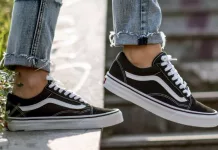Fashion News
Popular Reads
Latest Posts
Fashion Tips
The Fast Fashion News team keep their finger on the pulse so you don’t have to. From the new streetwear brands on the market, to the popular clothing labels we all know and love. Our FFN team are out there investigating and interviewing to deliver right to your screen.
We aim to deliver high quality fashion inspiration, tips and editorials. With our eyes glued to social media of fashion bloggers and models, we are scouring the latest seasonal designer collections and the glamour on the red carpet and runways of fashion events across the world, all to report on the latest trends and materials, fabrics, and colourways to inspire your wardrobe.
We aim to be one of the trusted digital fashion magazines for information on fashion shows in Spring and Winter.
Meet the Fast Fashion News team

FastFashion News
Our team of passionate and experienced writers, fashion enthusiasts, experts, and industry insiders work tirelessly to bring our readers the most up-to-date news, trends, and developments in the realm of streetwear fashion.
We started up in 2017, back when UK Streetwear Brands were really making an impact. Fast Fashion then didn't have a negative connotation. It was about delivering product quickly to the market based on demand. Our brand reflected the quick route to market, but sustainable fashion and the environment are important to us too.
Fast Fashion News is a dynamic and cutting-edge media agency dedicated to providing the latest updates and insights on streetwear fashion and lifestyle. Street style for us is not just about clothing; it is a lifestyle influenced by music, art, culture, and urban aesthetics.
What is Fast Fashion?
Fast fashion commonly refers to the rapid production and distribution of inexpensive, trendy clothing that is inspired by the latest fashion trends seen on runways, celebrity styles, and social media. It involves quickly bringing new designs from catwalks to stores to meet consumer demand for styles and trends that are popular and en vogue. This often prioritizes speed and low cost over sustainability, ethical production practices, and durability. This business model often leads to high turnover of clothing items, resulting in significant environmental and social impacts.
Within the fashion industry however, the term historically related to the short ordering of product based on fast lead times, with clothing brands designing and producing for the upcoming season rather than a year in advance. This enables the designers to be influenced by current trends for the upcoming season.


















